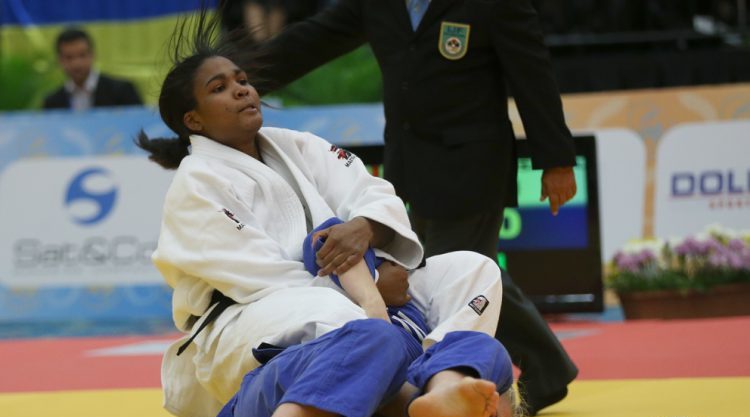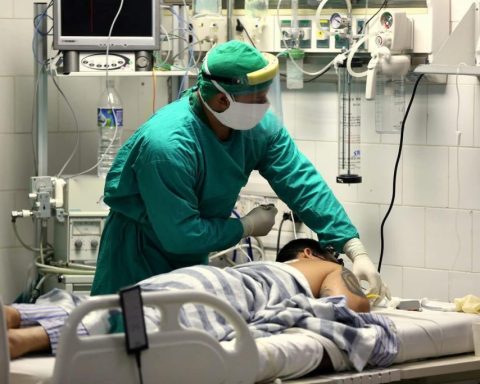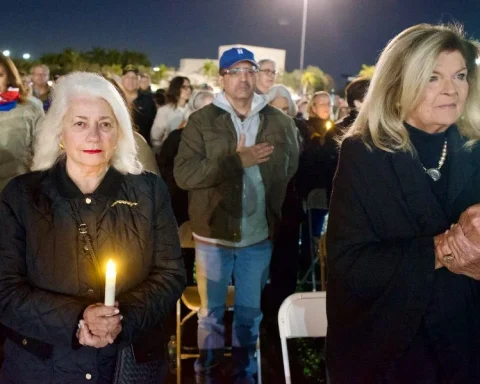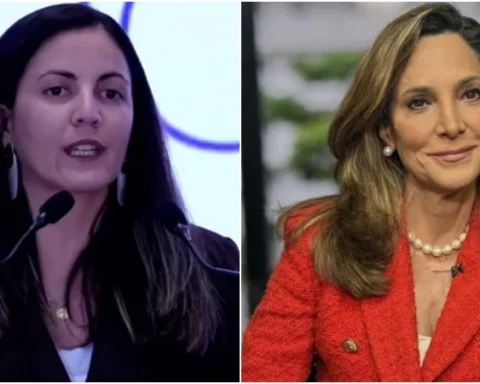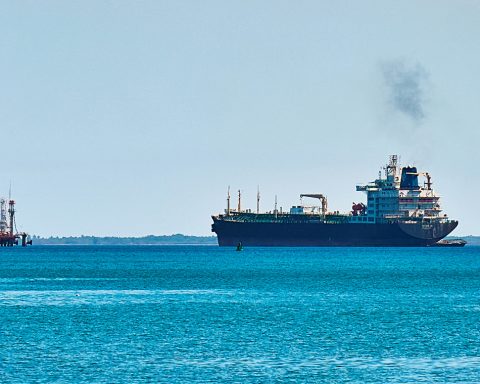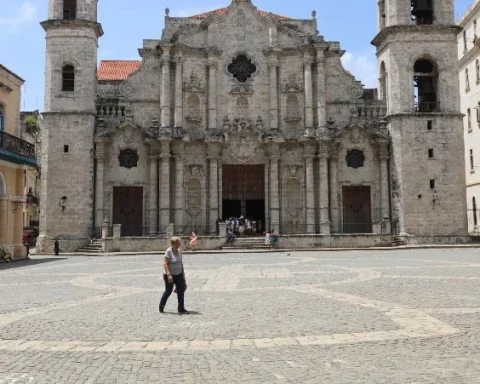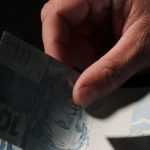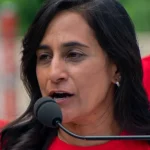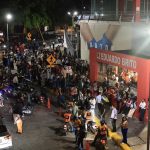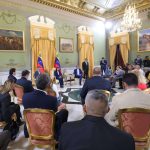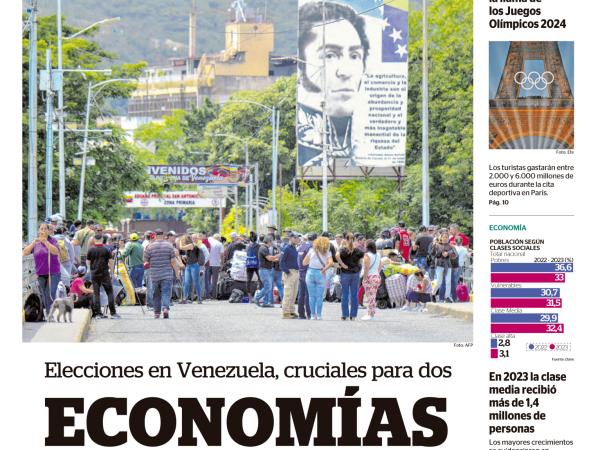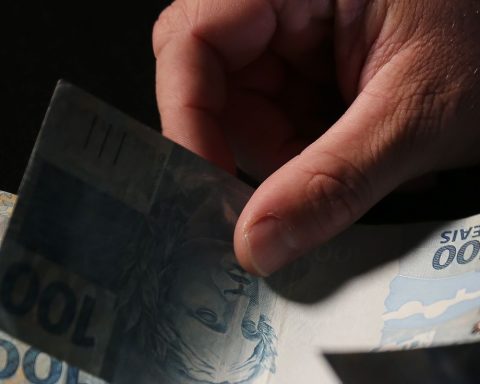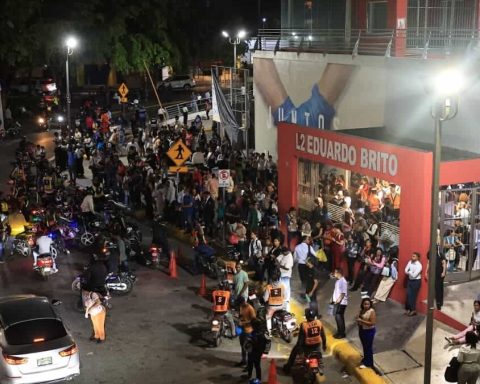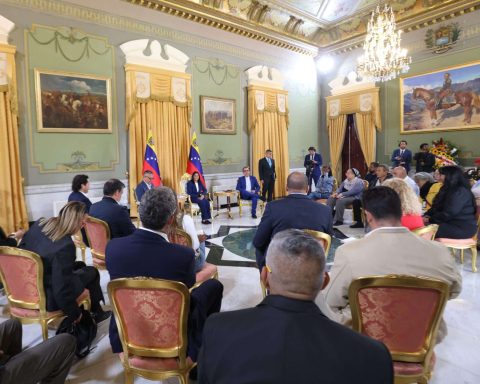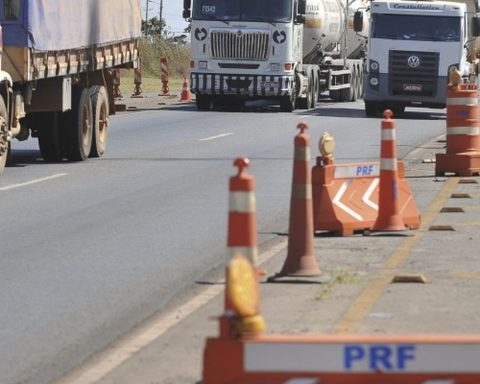MADRID, Spain.- “Being at the Games is already a gold medal for me,” confesses the Cuban-Canadian judoka Ana Laura Portuondo Isasi in conversation with CubaNetjust days away from his Olympic debut.
Since she was nine years old and told her father that she wanted to be one of the greats of the judo, Portuondo Isasi has worked tirelessly to achieve her Olympic dream. After overcoming an unjust suspension and years away from competition due to a concussion, the judoka will step onto the Parisian tatamis in her first match on August 2, representing Canada against Nicaraguan Izayana Marenco, in the +78 kg category.
With Pan American and national medals under her belt, Portuondo Isasi arrives at the Olympic event with the hope of conquering the podium.
—What does it mean to you to compete in the Olympic Games for the first time?
—Honestly, this means everything to me. It’s a dream I’ve had since I was very little, since I started judo when I was eight years old because my dad wanted my sister and I to learn how to defend ourselves.
We did gymnastics before starting judo and I didn’t like this combat sport at all. I developed slowly and then came the passion for competition. It’s a very beautiful sport, very complete and with an excellent discipline that has served me in all aspects of my life.
After seeing Nicolás Gil (former Canadian judoka, multi-Olympic and world medalist), who came to give a presentation at our dojo in Montreal, I was quite inspired because I saw how much admiration the children and people in general felt towards him.
I remember when I was nine years old telling my dad that I also wanted to be one of the greats, just like him. So that’s why Olympic Games They mean so much to me, because it is a dream that I have been nurturing since I was a child.
—What expectations do you have?
—Being in the Olympics is already a gold medal for me. I stopped judo for six years because of a head injury, a concussion. The doctors had recommended that I avoid all types of combat sports and that is why I was absent from the tatami for all that time. Well, I say absent from the tatami, but rather it was from everything that is considered competition, because I was teaching children.
I was not able to go to the last two Games, so just being in Paris is like winning for me. However, my first goal is to go for a medal. I have always said that when I walk onto the tatami, when I enter the tatami, I want to go for the gold, and nothing less than the gold.
—What can you say about the qualifying path?
—I think luck was on my side a bit. I have worked very hard over the years, but I cannot ignore the fact that luck was on my side in the sense that when I took up judo again, the rules changed and you could qualify for the Olympic Games as a team.
Normally, it takes an Olympic cycle and I had eight months to prepare and qualify. I knew that trying to do it in the individual would be very difficult for me, I mean, I wouldn’t make it in time, but if I qualified for the team I had a chance to participate representing Canada and that automatically gave me a pass to compete in everything, in the individual as well.
When I took up judo again in October 2023, I knew everything that would be involved in taking it up again at such a high level. And my way of preparing is a little different from the rest of my team because I have to combine studies, work and sport.
So, the road was long and difficult both physically and mentally. I have had injuries that I had never had before, but it was worth all the sacrifice. I don’t actually think it’s easy for anyone. I have a lot of respect for all the people who do this. I had forgotten how difficult it is to practice a high-performance sport. All the sacrifices one has to make. But every kind of effort is worth it when it’s to achieve your goal.
I think there is nothing more beautiful than dreaming, I had forgotten how to dream. When I took up judo again, that came back.
—How was the preparation?
—As for physical preparation, I train every day. Judo three to four times a week and physical preparation three times a week. During the day I work and at night I go straight to training. I also see a sports trainer, because it’s not just about the physical, but also about the mental.
—You have won several medals. Which one made you the happiest and why?
—In 2014 I won my first world medal. That year, at the Junior World Championships in Fort Lauderdale, I won the bronze final and took my first world championship medal. That was a very special moment for me because it showed me that you can’t give up, because I had been finishing fifth for several years.
Then in 2015, at the Pan American Championships in Edmonton, I did very poorly in the individual competition. And the next day, in the team competition, we finished first. One of my best memories is that in that gold final, Canada was against Brazil and 11 seconds before the end of the match, I projected Mayra Aguiar, who is an Olympic medalist. They gave me my point and that’s how we won.
And this year, at the Pan American and Oceania Judo Championships, I finished second, beating Idalys Ortis. So that victory is my most recent best achievement, and I am very proud of that.
—How did it feel to beat a Cuban judo legend?
—Idalys Ortiz is a person I have admired since I was young. She has always been one of my idols and she is a good person. Just having the honor of fighting with her was something great. When I won that fight I couldn’t believe it, I was so excited. Since I was young I have always had an affinity with the Cuban team. And with her too.
—In addition to the time away from competitions due to the injury, there was another up and down in your career, the suspension for alleged doping (salbutamol) in 2016…
—The situation with salbutamol, the suspension, is the most difficult thing that has ever happened to me in my life, the most difficult and traumatic. It was very difficult to overcome it because I have always been an athlete, a student, a very upright person, with the values that my parents have passed on to me. And something like that called into question all my credibility.
The most frustrating thing about that situation was knowing that at the end of the day that is my medication, prescribed. It is frustrating to know that inhaled salbutamol, as I use it, has no effect on performance, but as it was a substance banned by WADA (World Anti-Doping Agency), I was banned for two years and that meant I could not participate in the 2016 Olympic Games.
I was suspended for two years and had all kinds of subsidies taken away from me. I couldn’t go to train with the team, I couldn’t get into any kind of recognised national centre, and that was the hardest thing, being sidelined when I was basically already qualifying to go to the Rio Games. I had to start from scratch again and it affected me a lot because I’ve done judo all my life and I’ve always sacrificed everything for this sport.
But I learned from that experience that one decides how one reacts to a problem, to a situation. And I decided that since nothing was going to give me back the time that was taken from me, then I had better focus on what I could do from that moment on, and I told myself that I couldn’t stop, that I had to get back on the mats to prove that I could do it and that I didn’t do anything wrong. I preferred that experience to strengthen me rather than destroy me.
Another very important fact is that two years later, it was as if they had realized that they had made a mistake. And if my situation had occurred two years later instead of in 2015, I would not have been suspended, because the rules had changed.
—You were born in Cuba, but you have lived in Canada since you were very young. Do you still have any ties to the island?
—Yes, I was born in Matanzas, but I grew up here in Montreal, Quebec. I have been here in Montreal since I was three years old and yes, I have a relationship with Cuba. I have not been there for a few years because of everything, such as work and school. Now, with sports, sometimes it is difficult for me, but I have almost all my family there. And every time I go, I find a part of myself.
Author code
Follow our channel WhatsApp. Receive the information from CubaNet on your cell phone through Telegram.
